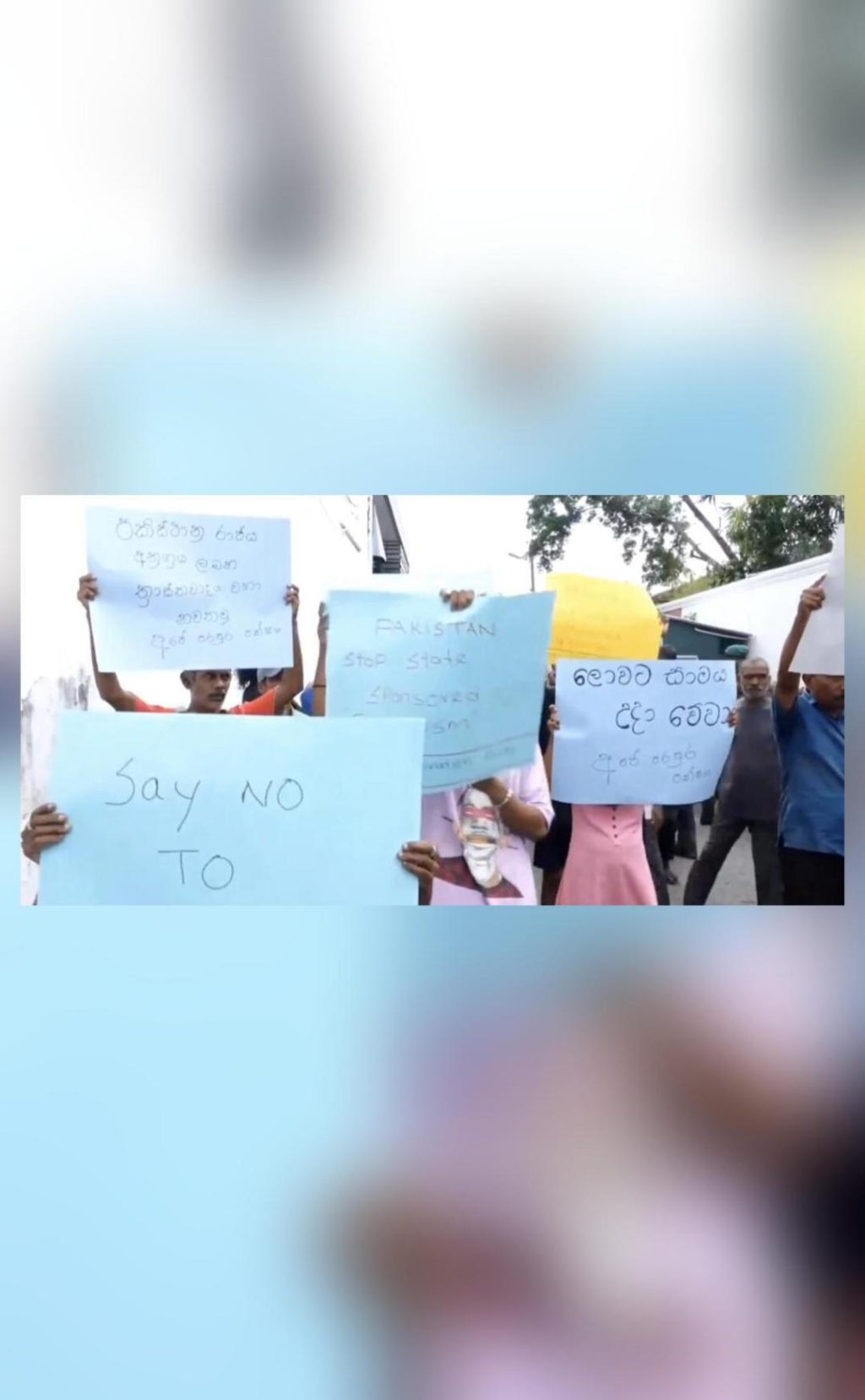
Title: Sri Lankans Protest Against J&K Attack Outside Pak High Commission
The recent terror attack in Pahalgam, Jammu and Kashmir, has sent shockwaves across the globe. The brutal killing of 26 people, including a Nepali national, has left the world in a state of disbelief. In a show of solidarity and condemnation, an estimated 200-300 Sri Lankans staged a protest outside the Pakistan High Commission in Colombo on Wednesday, demanding an end to “state-sponsored terrorism”.
The protest, which was peaceful and well-organized, saw participants holding banners that read “stop state sponsored terrorism” and “we don’t need Pakistan”. The protesters, who were mostly young Sri Lankans, gathered outside the high commission, chanting slogans and waving their national flags. The protest was a poignant reminder that the people of Sri Lanka stand in solidarity with the victims of terrorism and their families.
The Pahalgam terror attack has sent a strong message to the international community, highlighting the need for collective action against terrorism. The attack, which was claimed by the Pakistan-based Jaish-e-Mohammed (JeM) militant group, has sparked widespread outrage and condemnation across the globe.
Sri Lanka, which has its own share of experience with terrorism, has been at the forefront of the global fight against terrorism. The country has been working closely with other nations to share intelligence, coordinate efforts, and disrupt terrorist networks. The recent protest outside the Pakistan High Commission in Colombo was a testament to Sri Lanka’s commitment to combating terrorism and standing in solidarity with the victims of terrorist attacks.
The protest was organized by a group of Sri Lankan citizens who were deeply disturbed by the Pahalgam terror attack. The protesters, who came from all walks of life, were united in their demand for an end to “state-sponsored terrorism”. They believed that the attack was a result of Pakistan’s continued support to terrorist groups and its failure to take concrete action against them.
The protesters also held placards that read “Pakistan, stop supporting terrorism” and “India, we stand with you”. The latter was a nod to the strong ties between Sri Lanka and India, which have been strengthened through shared experiences and cooperation in the fight against terrorism.
The Pahalgam terror attack has also raised questions about the role of Pakistan in perpetuating terrorism in the region. Pakistan has been accused of providing safe haven to terrorist groups and of supporting them financially and militarily. The attack has highlighted the need for Pakistan to take concrete action against terrorist groups operating from its soil and to work towards creating a conducive environment for peace and stability in the region.
In a statement, the Pakistani High Commission in Colombo condemned the protests, saying that they were “unfortunate” and “misguided”. The statement also denied Pakistan’s involvement in the Pahalgam terror attack, saying that it was a “conspiracy” hatched by “anti-Pakistan elements”.
However, the protesters remained undeterred, emphasizing that they would continue to demand an end to “state-sponsored terrorism” until Pakistan takes concrete action against terrorist groups. The protest was a powerful statement of defiance against terrorism and a testament to the resilience of the Sri Lankan people.
In conclusion, the protest outside the Pakistan High Commission in Colombo was a powerful display of solidarity with the victims of the Pahalgam terror attack. It highlighted the need for collective action against terrorism and the importance of standing together against “state-sponsored terrorism”. The protesters’ demands for an end to terrorism and their condemnation of Pakistan’s continued support to terrorist groups are a powerful message to the international community. As the world continues to grapple with the challenge of terrorism, the people of Sri Lanka have sent a strong message that they will not be silenced and that they will continue to stand up against terrorism until it is eradicated.



